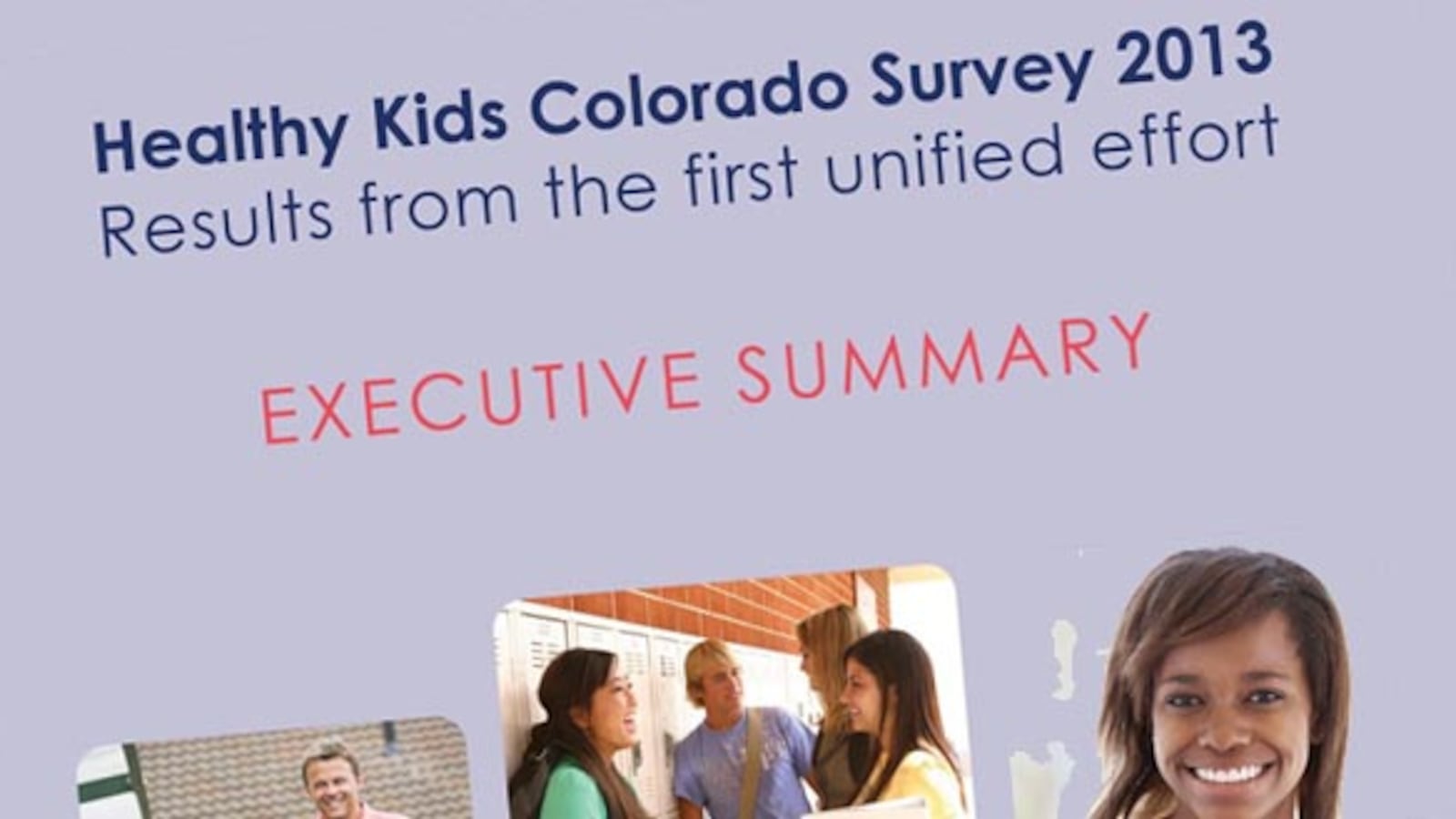The State Board of Education on Thursday will again tackle the Healthy Kids Colorado Survey, including the hot-button issue of how parents give permission for children to take the survey.
Last month, the board received an informal opinion from an assistant attorney general stating that parents must give written permission before students can take the survey, but delayed action on a motion that would have informed school districts of that opinion.
Meanwhile, the state’s health department, a lead agency in the survey work, is still awaiting a separate informal opinion on the issue from a different assistant attorney general.
While the health survey is on the state board’s agenda for Thursday afternoon, it’s unclear what action, if any, it will take.
The controversy about the health survey given to middle- and high-schoolers has bubbled up in recent months, piggy-backing on a growing outcry about student data privacy from some parents and lawmakers. Besides concerns that certain students could be identified by their responses, critics of the survey say some questions are too explicit. They also express concern that many parents don’t know their children are taking the survey because most districts don’t require advance parental consent.
On the flip side, officials involved in the survey’s administration emphasize that it is anonymous and voluntary, and say the survey data is critical to tracking state and local progress on adolescent health and identifying trouble spots.
Survey proponents fear that under the “opt-in” consent model, student response rates will fall dramatically and the data won’t provide as clear a picture of teen health in the state.
“It’s the only source of comprehensive adolescent health data that we have in the state,” said Sarah Nickels, the Healthy Kids Colorado Survey lead at the Colorado Department of Public Health and Environment.
History
The Healthy Kids Colorado Survey has been given under various names to the state’s middle and high school students since 1991. The most recent version folds together multiple health surveys that were previously given separately. Along with questions from the federal Youth Risk Behavior Survey, which is given in 47 states and the District of Columbia, it includes additional Colorado-specific questions on topics such as tobacco and marijuana use.
Also new in 2013 was a much larger sample size. Before 2013, around 2,500 students in about 80 schools were surveyed, compared to 40,206 students in 224 schools in the most recent survey.
The high school version of the survey (included at the end of this story) asks questions about sexual orientation, sexual behavior, suicide, smoking, alcohol, drugs, bullying, exercise, nutrition, grades and school involvement. The middle school version of the survey doesn’t ask questions about sexual orientation or sexual behavior, but does ask about the other topics.
Invaluable information or an invasion of privacy?
State officials say the survey data helps win health-related grants. One recent example is a nearly-$2 million grant the Colorado Department of Education received to train educators about youth mental health. State-level survey data is also used by the Colorado Health Foundation and Colorado Health Institute for most of the adolescent health indicators in their annual Colorado Health Report Card.
At the district level, some administrators say information gleaned from survey drives key decisions about what services and interventions to offer students.
Katrina Ruggles, the health coordinator and a counselor in the Center school district, said that the survey data has informed several district health initiatives in the last decade. These include providing new teacher training on suicide prevention, changing the snack policy to require more fresh fruits and vegetables, and altering bus schedules so secondary students could get to school in time to eat breakfast.
It’s also sparked efforts to combat drunk and drugged driving with special programs around prom time.
Virtually every health-related grant proposal includes data from the survey, said Ruggles.
“I think it’s just really, really crucial,” she said. “I’ve had zero complaints.”
While parent critics of the survey say they’re not seeking to ban such surveys, they believe schools should have to get explicit parental permission, called “active consent,” before students participate. That’s what the informal attorney general’s opinion provided to the state board last month said is required under federal and state law.
“I don’t know many people who discount the effectiveness and use of data,” said Jillian Moster, a Douglas County mother of three. “My great concern is this passive participation trend we’re seeing in Colorado.”
The health department’s Nickels said it’s currently up to school districts to decide whether to use active consent or passive consent for the Healthy Kids Colorado Survey. Passive consent means that students will be asked to participate unless parents sign a form asking the student be excused.
Nickels said about 92 percent of schools that participated in the 2013 survey chose passive consent. The assistant attorney general’s opinion shared with the state board last month could push those schools to use active consent.
In 2013, student response rates at Colorado schools that administered the Healthy Kids Colorado Survey using passive consent were between 89 and 96 percent. At active consent schools, the rates were between 61 and 64 percent.
Moster, who has one son in sixth grade and one in seventh, said her kids haven’t taken the survey but she wouldn’t let them if she was asked.

